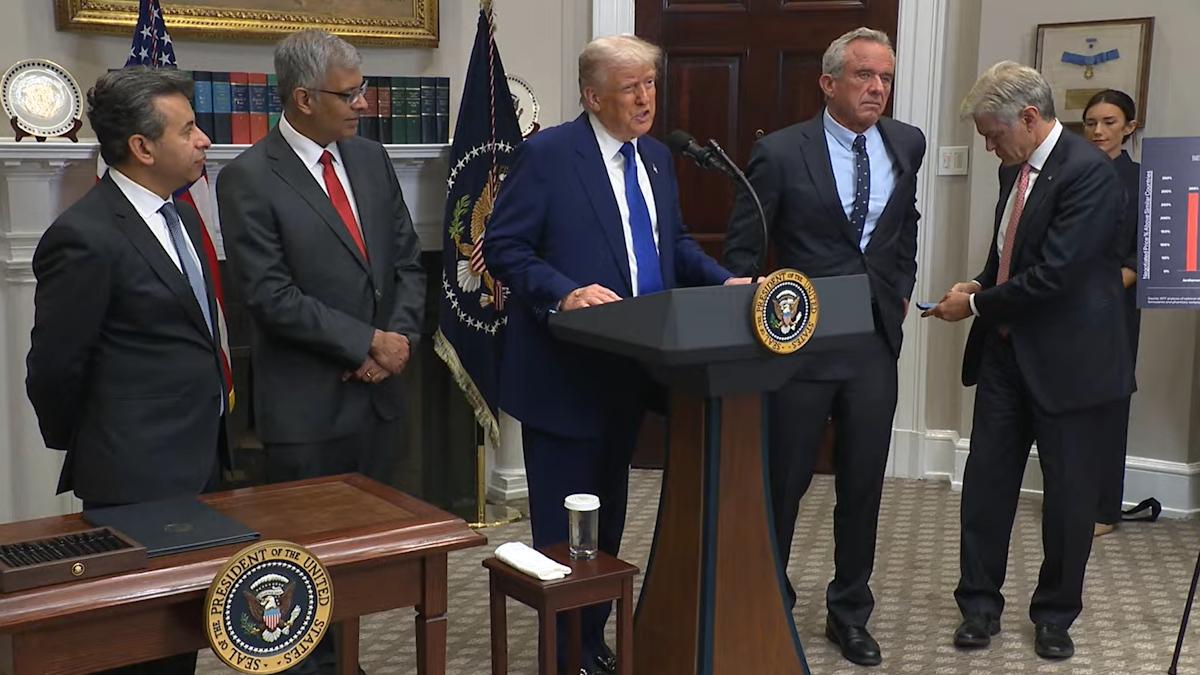Update: Trump 'will tie US drug prices to other countries'

President Donald Trump has signed an executive order that he claims will cut prescription drug prices supplied to the US to the lowest level paid by other countries.
"Starting today, the US will no longer subsidise the healthcare of foreign countries…and we will no longer tolerate profiteering and price gouging from big pharma," said Trump during a media briefing earlier today.
The order rests on the introduction of a so-called most favoured nation (MFN) system of reference pricing, in which the price of medicines would be set at "the same price as the nation that pays the lowest price anywhere in the world."
He said that while the US accounts for just 4% of the world's population, pharma companies make two-thirds of their profits in the US, and Americans are spending 70% more for prescription drugs than they did in the year 2000.
Using an MFN system, he argued, would lead to prices in the US coming down by around 59% "almost immediately," potentially as much as 90%, while prices elsewhere would rise "and…bring fairness to America."
Pharma has to tell other countries to raise prices, he asserted, while singling out the EU for particular vitriol, saying that it had been "nasty" and "in many ways nastier than China" and would have to start paying more for medicines to "equalise" world markets.
While most MFN models have used comparable nations to set a price – and a bipartisan US bill tabled in the Senate includes such a comparison – Trump said at the press briefing that the US would pay "the lowest price there is in the world."
The order "instructs the Administration to communicate price targets to pharmaceutical manufacturers to establish that America, the largest purchaser and funder of prescription drugs in the world, gets the best deal," although there is little in the order to spell out how that would be achieved in practice.
It also indicates that the Health and Human Services (HHS) Secretary, Robert F Kennedy Jr, will establish a mechanism through which American patients "can buy their drugs directly from manufacturers who sell to Americans at a [MFN] price, bypassing middlemen."
Trump made a similar attempt to introduce an MFN drug pricing policy towards the end of his first term in 2020, although that did not survive the incoming Biden administration.
At the time, the Pharmaceutical Research and Manufacturers of America (PhRMA) industry body sued to block the policy, arguing that it exceeded the authority of the Centers for Medicare and Medicaid Services (CMS), was contrary to law, would disrupt US patients' access to medicines, and have a detrimental impact on R&D.
This time around, Trump has pledged he will not be swayed by any such opposition, even though big pharma groups have provided funding for his inauguration and answered his call to site new manufacturing facilities in the US.
"Campaign contributions can do wonders, but not with me, and not with the Republican Party," wrote Trump in a social media post. "We are going to do the right thing, something that the Democrats have fought for many years."
A Department of Health and Human Services (HHS) document published in January cited RAND data which found that US prices across all drugs – branded and generic – were nearly 2.78 times as high as prices in comparison Organisation for Economic Co-operation and Development (OECD) countries, and at least 3.22 times as high after adjustments for estimated US rebates.












